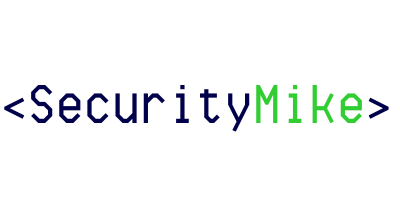In today’s digital age, where technology and the internet have become an integral part of our lives, the importance of protecting your privacy cannot be overstated. While the rise of technology has made it easier for people to access and share information, it has also made it easier for personal information to be compromised. From hackers and cybercriminals to companies and organizations collecting and sharing your personal information without your knowledge or consent, there are numerous risks that can threaten your privacy.
Key Takeaways
- Protecting your privacy is crucial in today’s world.
- Your information can be compromised in various ways.
- Creating strong passwords is essential for securing your accounts.
- Best practices for protecting your devices include regular updates and antivirus software.
- Recognizing and avoiding phishing attempts is important to safeguard your personal information.
Understanding the Risks: How Your Information Can Be Compromised
One of the first steps in protecting your privacy is understanding the risks involved. Hackers and cybercriminals can use various methods to gain access to your personal information. Phishing scams, for example, involve tricking individuals into revealing their personal information by posing as a trustworthy entity. This can be done through emails, messages, or even phone calls that appear to be from legitimate sources.
Malware is another common method used by cybercriminals to compromise personal information. Malware refers to malicious software that is designed to infiltrate and damage computer systems. It can be disguised as harmless files or programs and can infect your devices when downloaded or clicked on.
Social engineering is yet another method used by cybercriminals to gain access to personal information. This involves manipulating individuals into revealing their personal information through psychological manipulation or deception.
Companies and organizations can also collect and share your personal information without your knowledge or consent. This can happen through data breaches, where hackers gain unauthorized access to databases containing personal information. It can also happen through data mining, where companies collect and analyze large amounts of data to gain insights into consumer behavior.
Strengthening Your Passwords: Tips for Creating Stronger Passwords
Using strong passwords is one of the easiest and most effective ways to protect your personal information. Weak passwords can be easily guessed or cracked by hackers, leaving your accounts vulnerable to unauthorized access. Here are some tips for creating stronger passwords:
1. Use a mix of letters, numbers, and symbols: A strong password should include a combination of uppercase and lowercase letters, numbers, and symbols. This makes it harder for hackers to guess or crack your password.
2. Avoid common words and phrases: Avoid using common words or phrases as your password, as these can be easily guessed by hackers. Instead, opt for a combination of random characters that are not easily associated with you.
3. Use a password manager: If you struggle to remember multiple strong passwords, consider using a password manager. Password managers securely store your passwords and can generate strong passwords for you.
Securing Your Devices: Best Practices for Protecting Your Computer, Smartphone, and Tablet
Your devices can be vulnerable to cyberattacks and malware, so it’s important to take steps to secure them. Here are some best practices for protecting your computer, smartphone, and tablet:
1. Keep your software up to date: Regularly update the operating system and software on your devices. Updates often include security patches that address vulnerabilities that could be exploited by hackers.
2. Use antivirus software: Install reputable antivirus software on your devices to protect against malware and other threats. Keep the software up to date and run regular scans to detect and remove any malicious software.
3. Avoid public Wi-Fi networks: Public Wi-Fi networks can be insecure and leave your devices vulnerable to attacks. Avoid connecting to public Wi-Fi networks when accessing sensitive information or conducting financial transactions.
Avoiding Phishing Scams: How to Recognize and Avoid Phishing Attempts
Phishing scams are a common way for cybercriminals to gain access to your personal information. These scams involve tricking individuals into revealing their personal information through deceptive tactics. Here are some tips for recognizing and avoiding phishing attempts:
1. Be wary of unsolicited emails and messages: If you receive an email or message from an unknown sender or a sender you were not expecting, be cautious. Phishing emails often contain urgent requests for personal information or ask you to click on suspicious links.
2. Check the sender’s email address: Phishing emails often use email addresses that are similar to legitimate ones but have slight variations. Check the sender’s email address carefully to ensure it is legitimate.
3. Avoid clicking on suspicious links: Phishing emails often contain links that direct you to fake websites designed to steal your personal information. Avoid clicking on any links in suspicious emails or messages.
Safeguarding Your Social Media: Tips for Protecting Your Privacy on Social Media Platforms

Social media platforms can be a treasure trove of personal information, so it’s important to take steps to protect your privacy. Here are some tips for safeguarding your social media:
1. Review your privacy settings: Take the time to review and adjust the privacy settings on your social media accounts. Limit the amount of personal information that is visible to the public and only share information with trusted friends and connections.
2. Be careful about what you share online: Think twice before sharing personal information, such as your address or phone number, on social media platforms. Be mindful of the potential consequences of sharing too much information publicly.
3. Avoid accepting friend requests from strangers: Be cautious about accepting friend requests from individuals you do not know personally. Cybercriminals often create fake profiles to gain access to personal information.
Protecting Your Financial Information: Best Practices for Securing Your Financial Data
Your financial information can be particularly valuable to cybercriminals, so it’s important to take extra precautions to protect it. Here are some best practices for securing your financial data:
1. Use two-factor authentication: Enable two-factor authentication for your financial accounts whenever possible. This adds an extra layer of security by requiring a second form of verification, such as a unique code sent to your phone, in addition to your password.
2. Monitor your accounts regularly: Regularly review your financial accounts for any suspicious activity. Report any unauthorized transactions or suspicious activity to your financial institution immediately.
3. Avoid sharing your financial information online: Be cautious about sharing your financial information, such as credit card numbers or bank account details, online. Only provide this information on secure websites that you trust.
Keeping Your Personal Information Safe: How to Protect Your Name, Address, and Other Personal Details
Your personal information can be used for identity theft and other malicious purposes, so it’s important to keep it safe. Here are some tips for protecting your personal information:
1. Be careful about what you share online: Think twice before sharing personal information, such as your full name, address, or phone number, online. Be mindful of the potential consequences of sharing too much information publicly.
2. Shred sensitive documents: When disposing of sensitive documents, such as bank statements or medical records, shred them to prevent them from falling into the wrong hands.
3. Use a virtual private network (VPN) when browsing the internet: A VPN encrypts your internet connection and masks your IP address, making it harder for hackers to track your online activities and access your personal information.
Understanding Your Rights: Your Legal Right to Privacy and How to Enforce It
You have legal rights to privacy, but it can be difficult to enforce them. Understanding your rights and how to enforce them can help you protect your personal information and hold companies and organizations accountable for their actions. Familiarize yourself with privacy laws in your jurisdiction and consider seeking legal advice if you believe your privacy rights have been violated.
Taking Action to Protect Your Privacy in a Hyper-Connected World
Protecting your privacy in today’s world requires a proactive approach. By following the tips and best practices outlined in this article, you can take steps to protect your personal information and safeguard your privacy in a hyper-connected world. Remember to stay vigilant, regularly review and update your security measures, and be cautious about sharing personal information online. By taking these actions, you can minimize the risks and enjoy the benefits of technology and the internet while keeping your personal information safe.
If you’re concerned about protecting your privacy in today’s hyper-connected world, you may also be interested in reading an article titled “The Future of Cyber Warfare” by Security Mike. This thought-provoking piece explores the evolving landscape of cyber warfare and the potential threats it poses to individuals and organizations alike. From the vulnerabilities of our power grid to the latest malware targeting Mac users, Security Mike covers it all. Check out the article here to stay informed and safeguard your digital presence.
FAQs
What is a hyper-connected world?
A hyper-connected world refers to a world where people are constantly connected to the internet and each other through various devices and platforms.
Why is privacy important in a hyper-connected world?
Privacy is important in a hyper-connected world because personal information can be easily accessed and shared without consent, leading to identity theft, cyberbullying, and other forms of online harassment.
What are some ways to protect your privacy in a hyper-connected world?
Some ways to protect your privacy in a hyper-connected world include using strong passwords, avoiding public Wi-Fi networks, being cautious of what you share online, and using privacy settings on social media platforms.
What is two-factor authentication?
Two-factor authentication is a security process that requires users to provide two forms of identification before accessing an account or device. This can include a password and a fingerprint scan, for example.
What is encryption?
Encryption is the process of converting data into a code to prevent unauthorized access. This is commonly used to protect sensitive information such as credit card numbers and passwords.
What is a VPN?
A VPN, or virtual private network, is a tool that allows users to create a secure and private connection to the internet. This can help protect your privacy by masking your IP address and encrypting your internet traffic.

